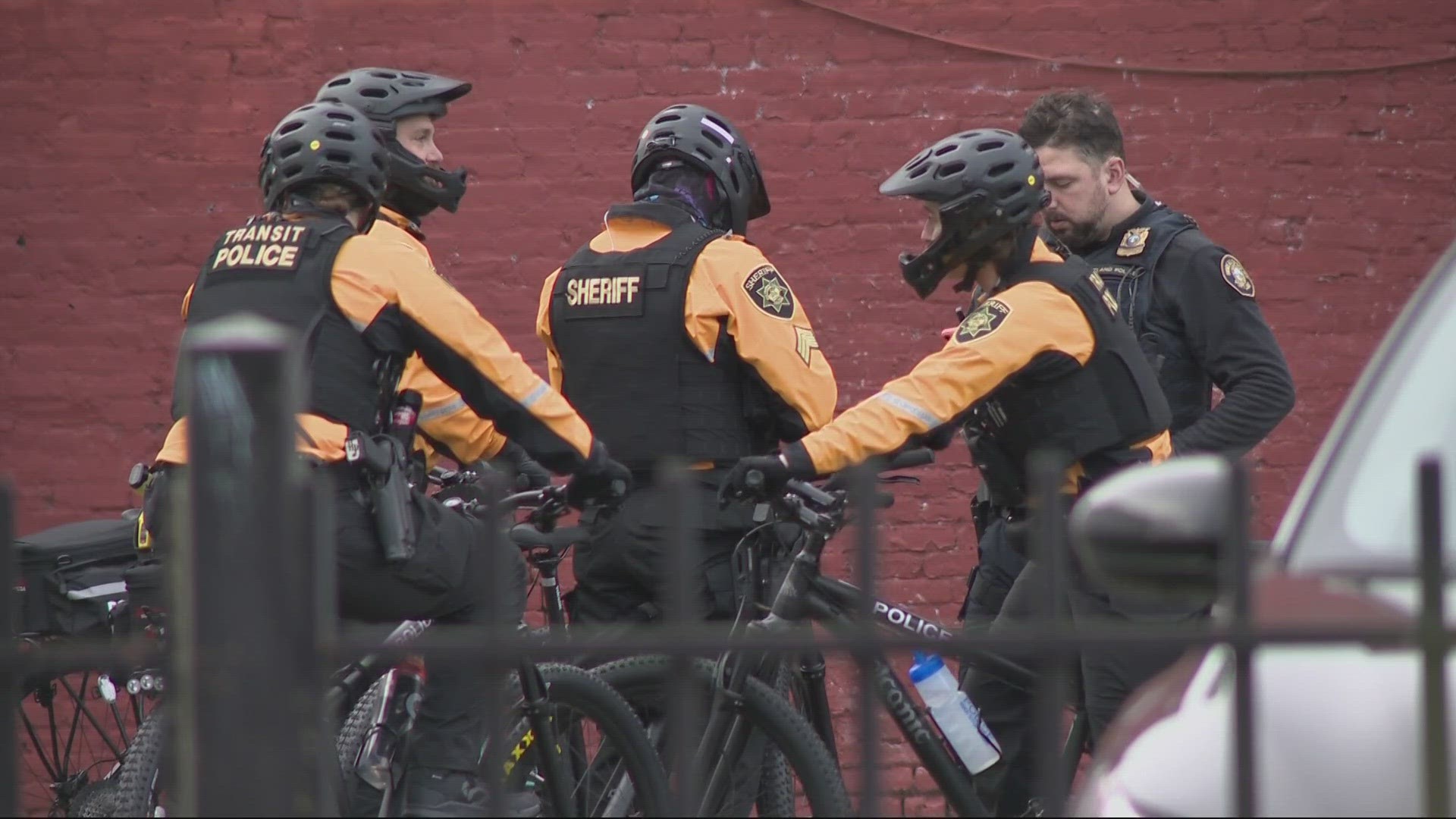PORTLAND, Ore. — Portland's recent efforts to pair police with outreach workers while responding to public drug use downtown have produced enough positive outcomes to warrant the program's expansion, according to a Wednesday statement from Multnomah County.
The program began in December, with officers from the Portland Police Bureau's Bike Squad teaming up with outreach workers and peer support specialists to offer help to people found using drugs in public.
Now, the pilot program is being expanded to cover all of Portland's central city. The first year will cost roughly $683,000, funded in equal parts by the city of Portland, Multnomah County and the state of Oregon. According to the county, the expansion comes at the request of the unified command for the current tri-government fentanyl emergency.
"Moving forward with this critical pilot is a perfect example of the tri-government, nonprofit and community partnership we need to change what's happening on our streets," said Multnomah County Chair Jessica Vega Pederson. "Multnomah County is proud to be funding this model that actively addresses people in crisis with outreach and resources."
Funding will go toward a lease at Mercy Corps' downtown Portland headquarters, which will become a central hub for coordinating outreach services. The funding still needs approval from both county and city governments, but will then cover costs for a full calendar year.
Expansion also means that five positions will be funded for the year — four peer support specialists and outreach team members, along with a program data analyst and project coordinator — as well as a vehicle that can support their outreach efforts.
Outreach services will come from the Mental Health & Addiction Association of Oregon (MHAAO), a nonprofit that operates the county's homeless day center in downtown Portland. They've been involved in offering peer support for the downtown Portland pilot program since it launched in December.
"This program embodies the kind of collaboration and urgency the fentanyl emergency was intended to promote,” said Portland Mayor Ted Wheeler. “The partnership between PPB’s Bike Squad and MHAAO has helped build relationships with people where they are, connect them with appropriate resources, and literally save lives. I am so pleased to help expand this pilot and support this critical work going forward.”
Gov. Tina Kotek added that the unified command was asked to "break the mold" and come forward with ideas that last beyond the 90-day emergency. She called this expansion a tangible result that could be a model for other regions.
According to a briefing on the pilot program delivered in February, outreach efforts were conducted on a total of six days between December and mid-February, with another date planned for Feb. 29. About 74% of people contacted — 73 people in total — said they were interested in connecting to services of one sort or another. A little over half, 52 people or 53%, were successfully connected with services.
A total of 37 people received services on the same day that they were contacted, and 14 of those got into detox or drug treatment of some kind. During interactions that involved police, 39 people or 66% were issued citations for drug use.

